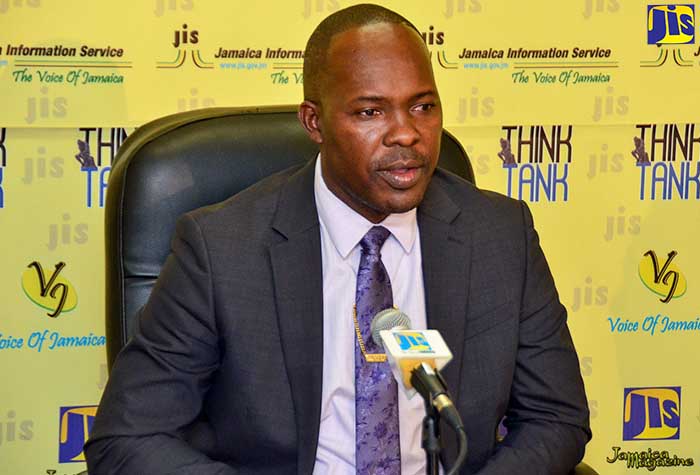Well-Rounded Curriculum for TAP Trainees
By: , March 26, 2018The Key Point:
The Facts
- Associate Vice-President for the Faculty of Advanced Skills and Professional Development at the Caribbean Maritime University (CMU), Dr. Cornell Brown, speaking at a recent JIS ‘Think Tank’, pointed out that there are nine modules to be taught for the duration of the TAP training.
- Participants will also be trained in data collection and integrity, which relates to the security of the data, the responsible use of the Internet and responsible data collection.
The Full Story
Participants in the Universal Service Fund (USF) Technology Advancement Programme (TAP) will receive training from a well-rounded curriculum, inclusive of face-to-face, experiential and practical exercises.
Associate Vice-President for the Faculty of Advanced Skills and Professional Development at the Caribbean Maritime University (CMU), Dr. Cornell Brown, speaking at a recent JIS ‘Think Tank’, pointed out that there are nine modules to be taught for the duration of the TAP training.
“We start out with employability skills, as the trainees are going to be gainfully employed, so we believe it is meaningful to expose them to some of the fundamentals that must be attended to, in being an effective employee,” Dr. Brown said.
After that, module 2 training will focus on effective communications strategies, adding that module 3 to 8 will focus on types of data; data collection methods, digitisation and some aspects of data analysis.
Participants will also be trained in data collection and integrity, which relates to the security of the data, the responsible use of the Internet and responsible data collection.
Dr. Brown said that the training phase will culminate with a field experience exercise, which is module 9.
For this, the participants will be going out and collecting data, guided by the course instructors.
Meanwhile, Marketing and Public Relations Manager at the USF, Deleen Powell, pointed out that many of the participants would not have had any kind of experience with using personal computers, “so one of the key things will be basic word processing, and showing persons how to use a computer, because for many individuals their experience with the Internet has been with handheld devices, tablets and mobile phones.”
“While that [experience] is great, as that is the direction the world is moving in, when it comes to being in the workplace, you need to have these basic word-processing skills, and the basic understanding of the various components of a computer,” she said.
The training started in March with regional workshops held in various regions across Jamaica over a one-week period.
In the meantime, Dr. Brown pointed out that even with the structure of the training, participants will get the practice of a real workplace, as they will be required to attend the training five days per week, with six contact hours per day.
He said that in addition to the academic portion of the training, the youth will participate in extra-curricular activities.
The TAP, which aims to train and place young people, 18 to 35 years old, in organisations to conduct digitisation or to collect data in relation to the organisation’s specific field, will last for 12 months.



